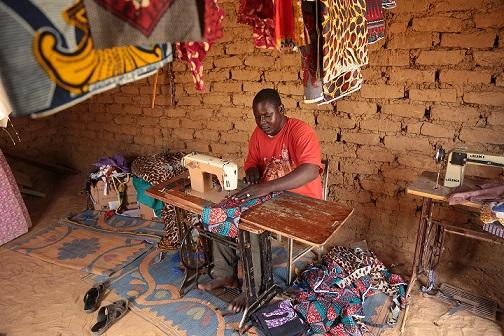EUTF supports the Protocol on the Free movement of Persons in the IGAD region

A regional protocol to boost IGAD region
After several years of negotiations, meetings and discussions, the IGAD Ministers of Foreign Affairs adopted the Protocol on free movement of persons (and transhumance) by decision of the IGAD Council of Ministers on 24 June 2021.
Dr Edith Namutebi Nsubuga, Counsellor at the Ministry of Foreign Affairs of Uganda explains: “The free movement of persons’ protocol has been a 3 years journey of negotiations. We are talking of free movement of persons; we are talking of free movement of goods, we are talking of the right of establishment and right of residence. You know is it already going on; people are moving; goods are moving. We produce. We can’t consume all that we produce”
IGAD Member States are convinced that Free Movement is important to allow for further trade relations and cooperation between them, and to address migration challenges, and other political issues that constrain their development. According to Asrar Ahmed Elsiddig, an official from the Sudan Ministry of Foreign Affairs: “For sure when you have this kind of integration you will have more development, more decent life, more job opportunities, this will be the benefit for us right now but it will be the benefit of our next generations”
EU support to the protocol
The European Union has a long experience of fostering regional integration and of managing movements across borders. By providing technical and financial support, capacity and advocacy-building measures, as well as offering valuable insight and experience, the EU has therefore been a key partner in strengthening the dialogue and cooperation between all stakeholders to make this protocol a reality.
“The free movement of persons it goes to the heart of the European project. We have created an enormous internal market of close to 500 million people” explains Aidan O’Hara, EU Ambassador to IGAD and Djibouti “We hope that this particular initiative on the free movement of persons in this region, will be the first step towards allowing the 230 million people who live here to start enjoying some of the advantages that we in Europe have been able to enjoy for decades now!”
Challenges ahead
Thanks to the EU Trust Fund project on “Free movement of persons and transhumance in the IGAD region”, the EU and the IGAD Secretariat will now reach out to each of the individual IGAD Member States to provide support in the respective national ratification processes, as well as give support to the national implementation of the road map to the protocol.
Lucy Daxbacher, IGAD Migration Programme’s Free Movement project officer explains some of the challenges ahead: “One of the key aspects regarding the right of entry, stay and exit is to develop the capability of Member States in terms of citizens’ identity, citizen’s registration so that when they travel they are identifiable. It is a fundamental building block.”
Background
The EUTF project aims at facilitating the free movement and improving labour mobility in the IGAD region. Through the grant to IGAD, the EU has been supporting the process of preparing, drafting and negotiating the IGAD protocols on free movement of persons and transhumance, leading up to the adoption of these protocols by the IGAD council of ministers on 24 June 2021.
Beside the elaboration of the protocol, the project supports the IGAD region and the Member States to improve labour mobility, by increasing knowledge, updating and reinforcing labour migration policies and promoting a right based approach to labour migration.
